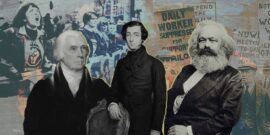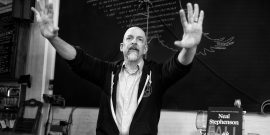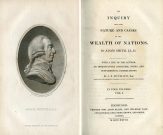When appraising American social cleavages, we should avoid lapsing into two unfortunate trends in conservative thinking: despair and polarization.
Brent Orrell
A new book tells a strange tale of political extremism in the Midwest.
John Roy Price’s memoir of welfare policy under Richard Nixon is a time capsule of policy and politics.
Marco Magnani paints a future of exciting possibilities and daunting challenges.
The best way to reduce inequality and foster opportunity is to lean into individual and community dynamism that will “grow the pie” from the inside.
If events do not conspire against Democrats, however, it’s at least conceivable the nation might follow California’s political trajectory.
Cash payments, in place of complex welfare programs, may be a step toward extricating government from the lives and ambitions of low-income Americans.
The use of "big data" threatens to erode the presumption of innocence in the name of crime prevention.
A shared, underlying agreement about the dignity of the person is the gravitational center around which our polity and politics orbit.
COVID-19 has been highly disruptive to the human social relations that Adam Smith identified as central to human nature.
COVID-19 threatens to become the precipitating event that reshapes the way we think about work, commuting, and urban living.
The social nature and needs of human beings will draw us back to work—not just because we have to but because we will be aching to.
The individual who enters commercial life with Bloomberg-sized ambition takes on a burden few of us would envy.
What if the world we live in truly is as unpredictable and contingent as the “noise” that surrounds us suggests?
How the novels of Neal Stephenson illuminate the present and the future.
Can the Theory of Moral Sentiments help heal the Conservative–Libertarian divide?
The thrust of the St. John’s program is that final knowledge, while it is held to exist and must be pursued, cannot be possessed.
Brent Orrell is a Senior Fellow at the American Enterprise Institute.

















